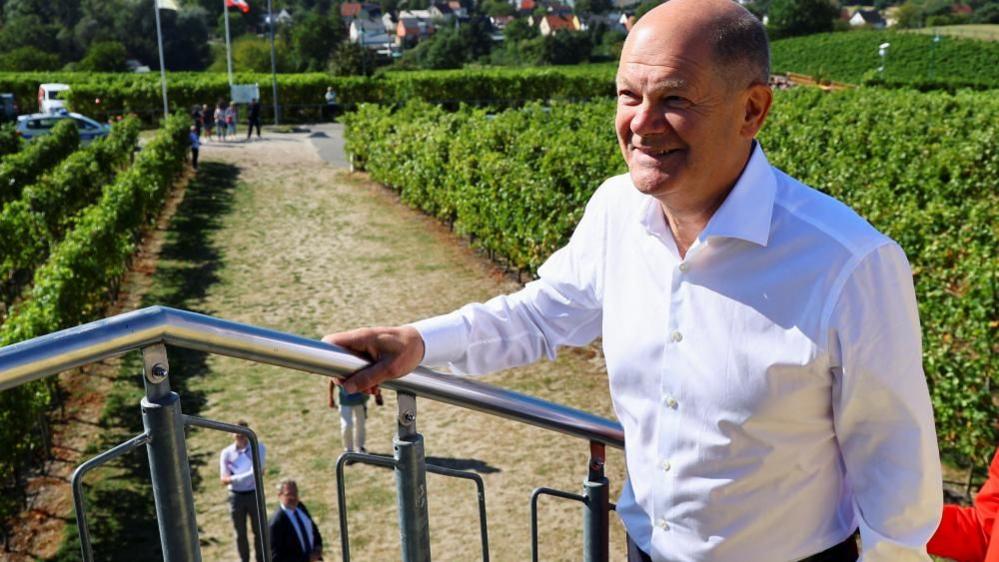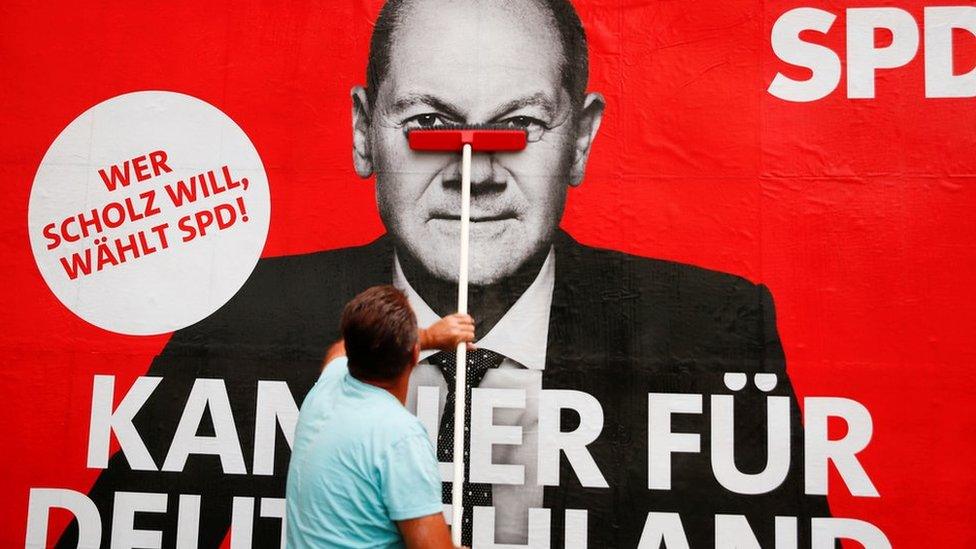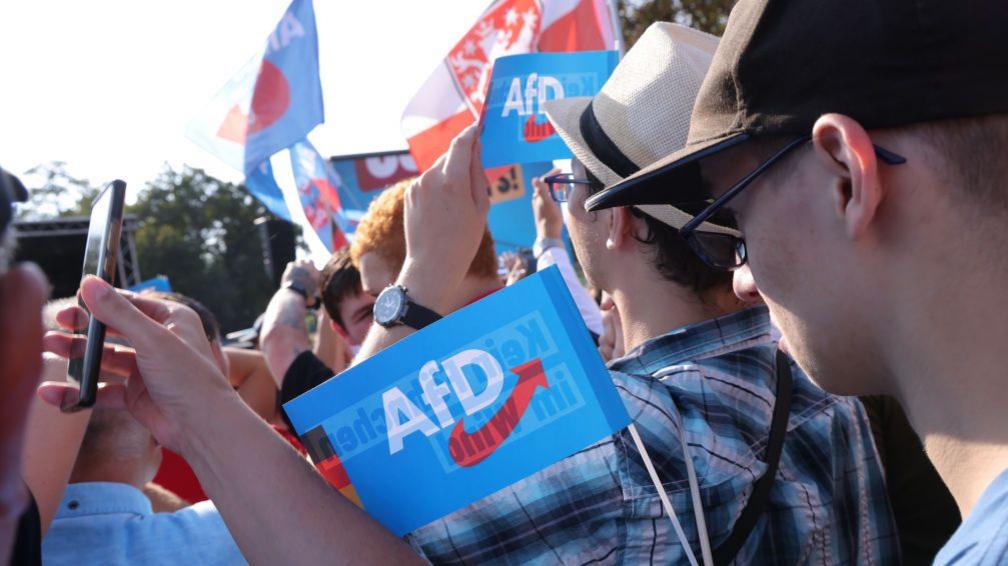Germany's Scholz escapes far-right win in home state - exit polls

German Chancellor Olaf Scholz, seen here on the campaign trail in Werder, Brandenburg, this week
- Published
Germany's chancellor appears to have narrowly dodged humiliation after exit polls suggested his party has held off the far right in his home state.
Olaf Scholz's centre-left Social Democratic Party (SPD) won Sunday's regional election in stronghold Brandenburg by just one or two percentage points, according to polls by the two main public broadcasters.
Alternative for Germany (AfD) stood a chance of winning the state, which has been governed by the SPD since German reunification in 1990.
But after voting ended at 18:00 (16:00 GMT), predictions put the SPD on 31 to 32% to the AfD's 29 to 30%.
The election, on the outskirts of Berlin, was being watched closely after the AfD became the first far-right party to win a state election in Germany since World War Two, in the eastern state of Thuringia, on 1 September.
The party also came a narrow second in Saxony on the same day.
An AfD win in Sunday's election would have dealt a major blow to Scholz's hopes of a second term in Germany's federal elections next year.
It would also have been embarrassing, given he lives in the state's capital, Potsdam.
Scholz has faced plummeting opinion polls and infighting in his embattled coalition government.
But about two million voters in Brandenburg may have given him a rare political lifeline.
Far right on the rise

The AfD has been bolstering its support at rallies in multiple states
Dietmar Woidke, the state's popular SPD premier, has mostly shunned campaigning with Scholz and is critical of his ruling coalition's behaviour and policies.
Scholz, meanwhile, called earlier this month on other parties to block the "right-wing extremist" AfD from office by maintaining a so-called firewall against it.
He described the results in Thuringia and Saxony as "bitter" and "worrying".
"The AfD is damaging Germany. It is weakening the economy, dividing society and ruining our country's reputation," he said in a previous statement to Reuters.
The AfD, officially classified “extremist” in some states, is unlikely to enter any regional governments because every other party has refused to work with it.
Bolstered by youth support, it continues to capitalise on worries over an economic slowdown, immigration and the Ukraine war - concerns that resonate strongly in the formerly Communist eastern Germany.
Its win with almost a third of the vote in Thuringia shocked the political establishment. It placed nine points ahead of the conservative CDU and far in front of Germany's three governing parties.
The AfD is second in national opinion polls, with the federal elections only a year away.
Co-leader Alice Weidel has claimed that "without us, a stable government is no longer possible at all".
Related topics
- Published8 December 2021

- Published8 September 2024

- Published21 September 2024
